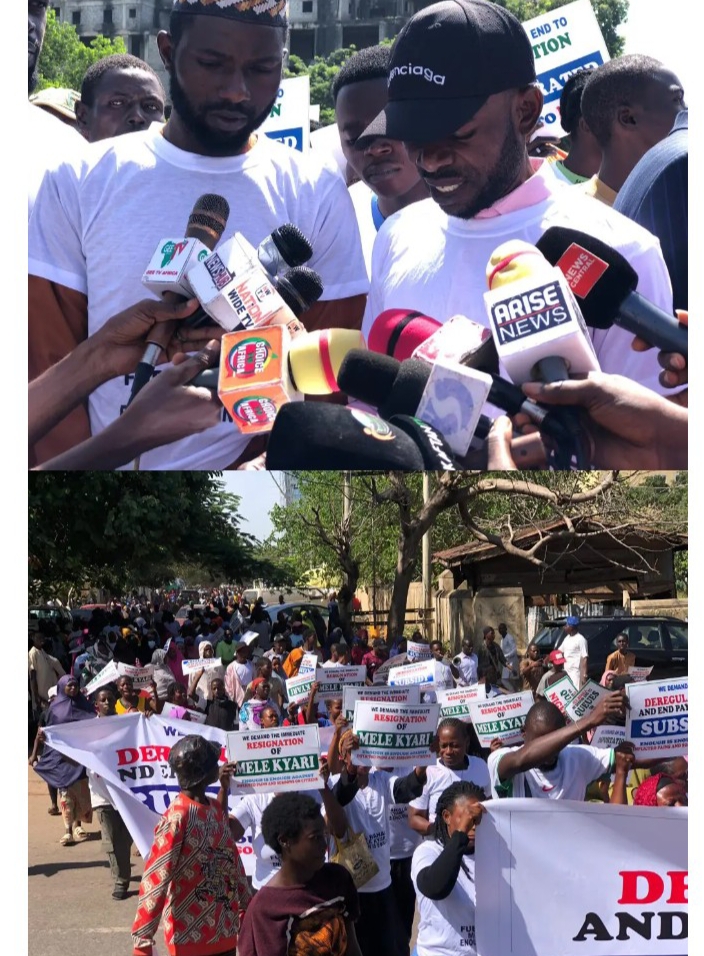A large group of Nigerians, particularly youth activists, gathered outside the headquarters of the Nigerian National Petroleum Company Limited (NNPCL) in Abuja, calling for the immediate resignation of Mele Kyari, the Group Chief Executive Officer.
The protest, spearheaded by multiple Civil Society Organizations (CSOs), reflects growing dissatisfaction with Kyari’s leadership amidst what they described as spiraling fuel prices, persistent fuel shortages, and the rising cost of living that has exacerbated economic hardship across the country.
Protesters, holding up placards with messages such as “We demand the immediate resignation of Kyari,” voiced their grievances about what they perceive as mismanagement within the NNPCL under Kyari’s leadership.
The CSOs alleged that Kyari’s tenure has been marked by a lack of accountability and transparency, contributing to a worsening fuel crisis that is straining the livelihoods of millions of Nigerians.
One of the protest conveners, Abdullahi Bilal, addressed journalists at the scene, highlighting several key demands from the group.
Bilal condemned the continued existence of what he described as a “fraudulent fuel subsidy” scheme, which, according to him, has primarily benefited a small elite at the expense of the broader Nigerian population.
He argued that the subsidy structure has become an avenue for corrupt practices, allowing select individuals and companies to profit while average Nigerians are forced to bear the brunt of the economic consequences.
“Today, we call for the immediate resignation of Mele Kyari, the Group Chief Executive Officer of the Nigerian National Petroleum Company Limited (NNPCL),” Bilal stated passionately.
He emphasized the urgent need for full deregulation of Nigeria’s oil sector as a means of promoting transparency, competition, and fairness within the industry.
According to him, a deregulated system would dismantle monopolistic controls and introduce more accountability, ultimately benefiting consumers.
Additionally, Bilal decried the recurring problem of adulterated fuel imports, a practice that has not only damaged vehicles but has also had a broader detrimental impact on businesses and daily life for many Nigerians.
He argued that the importation of contaminated fuel poses serious risks to public safety and the economy.
“We demand an end to the importation of adulterated fuel into Nigeria. This harmful practice must stop immediately, and those responsible must be held accountable for the damage caused to our vehicles, businesses, and livelihoods,” he said.
As the protest unfolded, participants urged the federal government to step in and address what they characterized as the failures of the current NNPCL administration.
The demonstrators called on authorities to prioritize the interests of ordinary Nigerians by reforming the petroleum sector, eliminating corrupt practices, and implementing policies that would alleviate the financial pressures facing many households.
Through their vocal and symbolic protest, they underscored a broader sentiment of frustration, demanding both immediate action and systemic change to restore faith in Nigeria’s oil industry.
The growing discontent, coupled with escalating protests, highlights the increasing pressure on the government and NNPCL leadership to address issues within the sector and deliver tangible improvements for Nigerian citizens.

